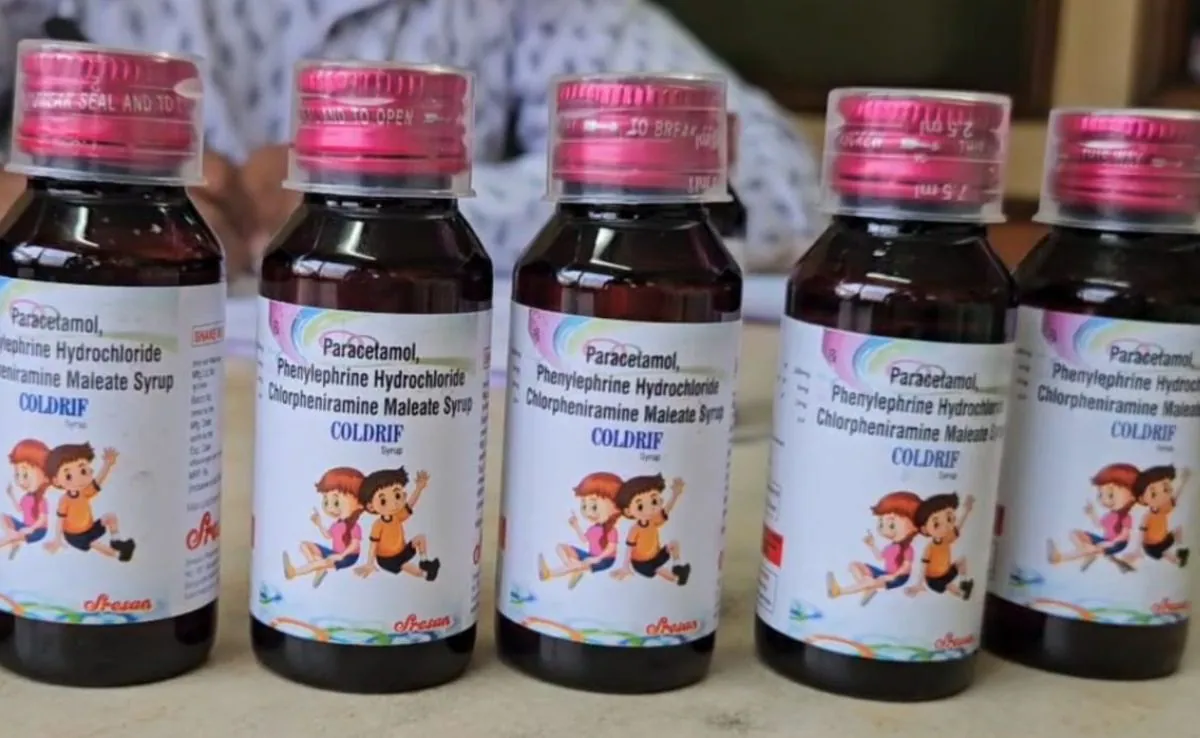Now Reading: Cough Syrup Contamination Crisis: 23 Child Deaths Prompt Action in Tamil Nadu
-
01
Cough Syrup Contamination Crisis: 23 Child Deaths Prompt Action in Tamil Nadu
Cough Syrup Contamination Crisis: 23 Child Deaths Prompt Action in Tamil Nadu

The tragic deaths of 23 children in Madhya Pradesh have brought national attention to the dangers of contaminated cough syrups. The victims reportedly consumed Coldrif, a product manufactured by Sresan Pharmaceuticals in Tamil Nadu. Laboratory tests have confirmed the presence of diethylene glycol (DEG), a toxic industrial chemical, in levels far exceeding permissible limits. This revelation has led to widespread concerns about drug safety and regulatory oversight in India.
The Role of DEG in the Tragedy
Diethylene glycol is a substance commonly used in industrial applications such as antifreeze and solvents. It has no legitimate use in pharmaceutical products. When consumed, DEG can cause acute renal failure and death, particularly in children. In the case of Coldrif, DEG was found to be present at levels nearly 500 times higher than the permissible limit, leading to the tragic loss of young lives.
Regulatory Oversight and Accountability
In response to the crisis, the Tamil Nadu Drugs Control Department has taken decisive action. Two senior drug inspectors have been suspended for failing to conduct required inspections at Sresan Pharmaceuticals’ manufacturing facility. Additionally, the state health minister announced plans to permanently close the plant. These measures highlight the state’s commitment to ensuring drug safety and holding accountable those responsible for negligence.
National Implications and Public Health Concerns
The incident has sparked a nationwide debate about the quality control mechanisms in India’s pharmaceutical industry. While the central government had cleared the drug for distribution, the contamination underscores potential gaps in regulatory processes. The World Health Organization has also raised concerns about the possibility of such contaminated products entering international markets through unregulated channels.
Impact on Tier-2 Cities and Rural Areas
For residents in Tier-2 cities and rural areas, this incident serves as a stark reminder of the vulnerabilities in the healthcare system. Limited access to information and healthcare infrastructure can exacerbate the impact of such crises. It underscores the need for robust public health education and improved regulatory frameworks to protect vulnerable populations.
Conclusion
The Coldrif tragedy is a wake-up call for India’s pharmaceutical industry and regulatory bodies. It underscores the urgent need for stringent quality control measures, transparent regulatory processes, and greater accountability to prevent such incidents in the future. As the nation grapples with the aftermath, it is imperative to ensure that the lessons learned lead to meaningful reforms in drug safety and public health protection.

























